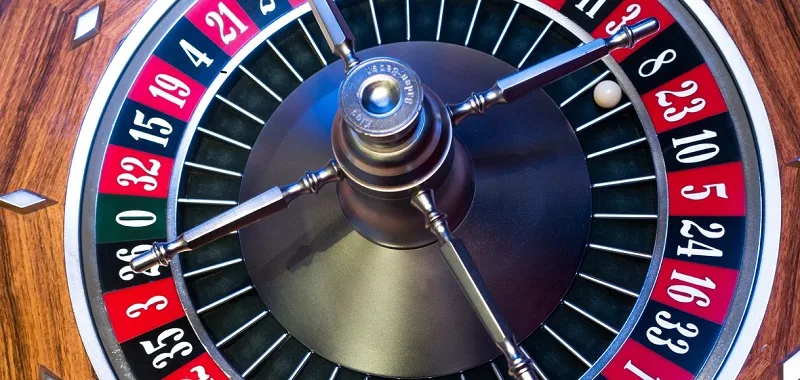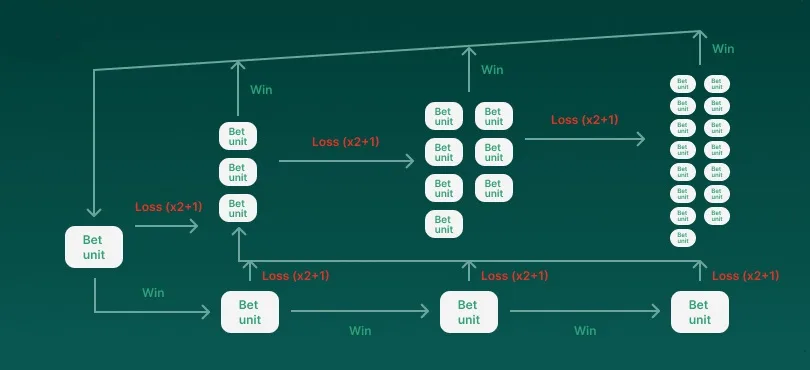
Martingale Betting System in Roulette
The allure of the roulette wheel has captivated gamblers for centuries, offering a blend of chance, strategy, and the potential for significant rewards. While luck plays a pivotal role in roulette, players continually seek systems and strategies to tilt the odds in their favor. One such strategy, known for its simplicity and high-risk, high-reward nature, is the Martingale betting system.
Why Systems Are Needed When Playing Roulette
Roulette, at its core, is a game of chance. Each spin of the wheel is independent of the last, making it impossible to predict the outcome of any given spin with certainty. However, this unpredictability does not deter players from seeking strategies to manage their bets effectively. Betting systems, like the Martingale, offer a structured approach to wagering, aiming to maximize wins and minimize losses over time.
Such systems are particularly appealing in roulette due to the game’s even-money bets, offering a near 50-50 chance of winning. Players use these systems to make informed decisions, attempting to counteract the house edge inherent in casino games.
What Kind of Martingale System
The Martingale system is a progressive betting strategy rooted in doubling the bet after every loss. This method assumes that a win is bound to occur eventually, and when it does, the player recovers all previous losses, plus a profit equal to the original bet.
Originating in 18th-century France, the Martingale system was first associated with a coin toss game. Over time, it has been adapted for various casino games, especially roulette, due to its simplicity and straightforward application to even-money bets such as red/black or odd/even.
The system’s appeal lies in its simplicity: start with a small bet on an even-money outcome. If you win, repeat the bet; if you lose, double the bet and continue doing so until you win, then return to the initial bet size.
What Is Its Main Meaning
The essence of the Martingale system is to recover losses through a single win. It operates on the principle that a win will eventually nullify all accumulated losses, provided the player can sustain a sequence of doubled bets following losses. This strategy emphasizes the importance of persistence and a substantial bankroll to withstand the potential for multiple consecutive losses.
However, the Martingale system is not without its pitfalls. Casinos often implement table limits to prevent players from indefinitely doubling their bets. This limitation can disrupt the Martingale strategy, potentially leading to significant losses without the opportunity for recovery.
Moreover, the system assumes unlimited funds and no table betting limits—conditions seldom met in real-world gambling. It also disregards the house edge, which remains constant regardless of betting strategy.
Despite these limitations, the Martingale system offers an organized approach to betting, making it easier for players to manage their funds and make decisions. It simplifies the gambling experience, especially for newcomers, providing a clear strategy in the face of roulette’s inherent randomness.
In practice, the Martingale system demands discipline and a clear understanding of its risks and rewards. Players must be prepared to face the possibility of rapid bankroll depletion and recognize when to walk away.

Tips on How to Use It
Using the Martingale system effectively requires a balanced approach and mindfulness of its limitations. Start with the minimum bet and an ample bankroll, ensuring the ability to double bets after losses. Set a profit goal and a loss limit to maintain control over the gambling experience.
It’s also crucial to understand the emotional and financial implications of a high-risk strategy like the Martingale. Discipline and self-control are key, as is the recognition that no system can guarantee success in a game of chance.
How Effective It Is
The effectiveness of the Martingale system is a topic of much debate among gamblers. While it can lead to short-term success, the long-term viability is questionable due to the risk of significant losses. The system is best viewed as a tool for managing bets rather than a foolproof strategy for winning at roulette.
Ultimately, the Martingale system’s effectiveness is influenced by individual circumstances, including bankroll size, risk tolerance, and personal goals. It offers an intriguing approach to gambling, blending discipline with the thrill of chasing losses, but it is not without its risks.
The Martingale betting system embodies the dual nature of gambling: the pursuit of control within a realm governed by chance. It offers a structured approach to betting, providing clarity and a plan of action amidst the unpredictability of roulette. However, it also highlights the limitations of betting systems, reminding players of the importance of discipline, financial management, and an understanding of the risks involved.
As with any betting strategy, the Martingale system should be employed with caution, awareness, and realistic expectations. It represents one of many approaches to the complex, fascinating world of roulette gambling, offering insights into the balance between strategy and chance.
